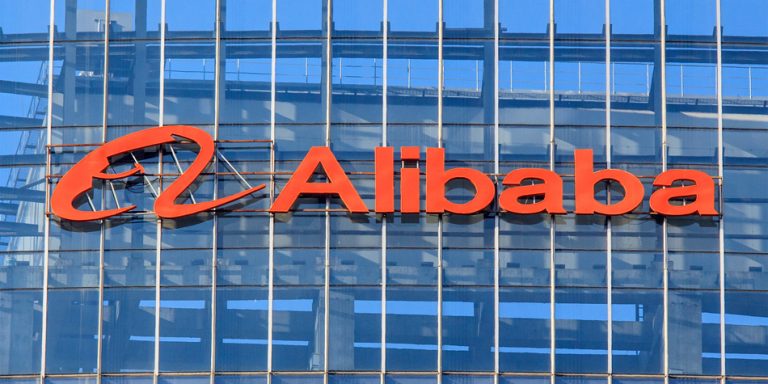In April of last year, Alibaba Group Holding Ltd (NYSE:BABA) Executive Chairman Jack Ma cautioned the world that artificial intelligence would cause “more pain than happiness.” The irony? Since then, BABA stock has become an AI play.
That’s not to suggest Alibaba is as much of an artificial intelligence powerhouse as International Business Machines Corp. (NYSE:IBM) or Microsoft Corporation (NASDAQ:MSFT), or even NVIDIA Corporation (NASDAQ:NVDA).
IBMis doing all sorts of things with Watson. Microsoft has been slowly but surely acquiring its way into the space. And NVIDIA supplies the high-capacity processors that facilitate all the number-crunching required of AI development.
Alibaba isn’t quite shoulder-to-shoulder with any of those players in the artificial intelligence race just yet.
But just give it time.
Alibaba is an AI Outfit
Ma’s warning was delivered at an entrepreneurship conference in China nearly a year ago, and he added:
“Machines should only do what humans cannot. Only in this way can we have the opportunities to keep machines as working partners with humans, rather than as replacements.”
Earlier this week, Alibaba established its first joint AI research center outside of China, partnering with Singapore’s Nanyang Technological University to find ways of using artificial intelligence in the worlds of healthcare, transportation and smart homes.
That’s Alibaba’s first AI research facility
outside of China, by the way. Similar setups have already materialized within the country. Moreover, the company is already offering less-progressive, more marketable artificial intelligence tool right now. Late last month, Alibaba launched eight different AI services in Europe, including high-performance cybersecurity solutions, an image-search tool and an intelligent “chatbot” for businesses.
One doesn’t have to look too far back to see BABA stock has increasingly — albeit quietly — become a play on artificial intelligence. The unveiling of an AI-powered fashion consultant just in time for last year’s Singles Day was a curious but benign use of the power of supercomputing. And just a month prior Ma earmarked $15 billion for the advancement of artificial intelligence and quantum computing (which has AI implications of its own).
So Alibaba is already an artificial intelligence player. And the company has positioned itself become even more of an AI outfit in the future.
Big Market, Big Plans
Though artificial intelligence has been a head-turner, to date it’s not exactly been a game-changer.
IBM’s Watson has trounced the competition on TV game show Jeopardy. And it is providing some serious calculator work in the selection of the idea oncology drugs for different cancers. However, the technology is lagging far behind IBM’s promises despite the hype from just a few years ago.
In the meantime, while self-driving cars are a reality, the ‘artificial intelligence’ that makes this possible is less about intelligence and more about successfully processing a massive amount of data.
Again though, give it time. Just don’t give it too much time. Alibaba’s efforts could pay off in an actual revenue-bearing way sooner than many might expect. That’s because, if nothing else, it’s got the indirect and implied support of China’s government.
AI to Take Off in China
Mid last year, the country’s vice minister of science and technology Li Meng suggested China would catch up to the rest of the world on the AI front by 2020. Five years later, he expects China to make a major artificial intelligence breakthrough. By 2030, the provision of AI services and products is projected to become a $150 billion industry for China.
The advent of those artificial intelligence tools would also fiscally benefit China’s other industries.
The figures vary from one look to the next, but PriceWaterhouseCooper’s estimate that AI will contribute as much as $15.7 trillion worth of additional productivity output is arguably one of the more defendable ones. Moreover, the PwC report posted in mid-2017 suggests that China stands to gain more than any other country from the advent of AI because its economy is manufacturing-centric. And manufacturing lends itself to the greater efficiencies AI can create.
All told, artificial intelligence could add another 1.6% to China’s annual GDP growth rate by 2035, according to a report from Accenture Plc and Frontier Economics.
The benefits of China’s foray into AI — led by Alibaba — will be evident well before then, however.
Bottom Line for BABA Stock
BABA’s AI involvement is not a reason to buy BABA stock in and of itself… at least not yet. If nothing else, this is the beginning a long-term romance between Alibaba’s willingness and China’s governmental desire. And a lot market participants are focused on what’s likely to happen before the end of the current quarter.
Still, to holistic investors that prefer to stick with stocks for the long haul, this is an interesting dynamic to watch. Though Alibaba seems to be developing the artificial intelligence tools Ma fears will indeed replace humans — especially in China where a great deal of physical work is still done by actual people — that outcome seems inevitable.
BABA is still largely billed as an e-commerce outfit. But current and potential owners of BABA stock can no longer ignore the company’s AI-rich future.
As of this writing, James Brumley did not hold a position in any of the aforementioned securities. You can follow him on Twitter, at @jbrumley.

